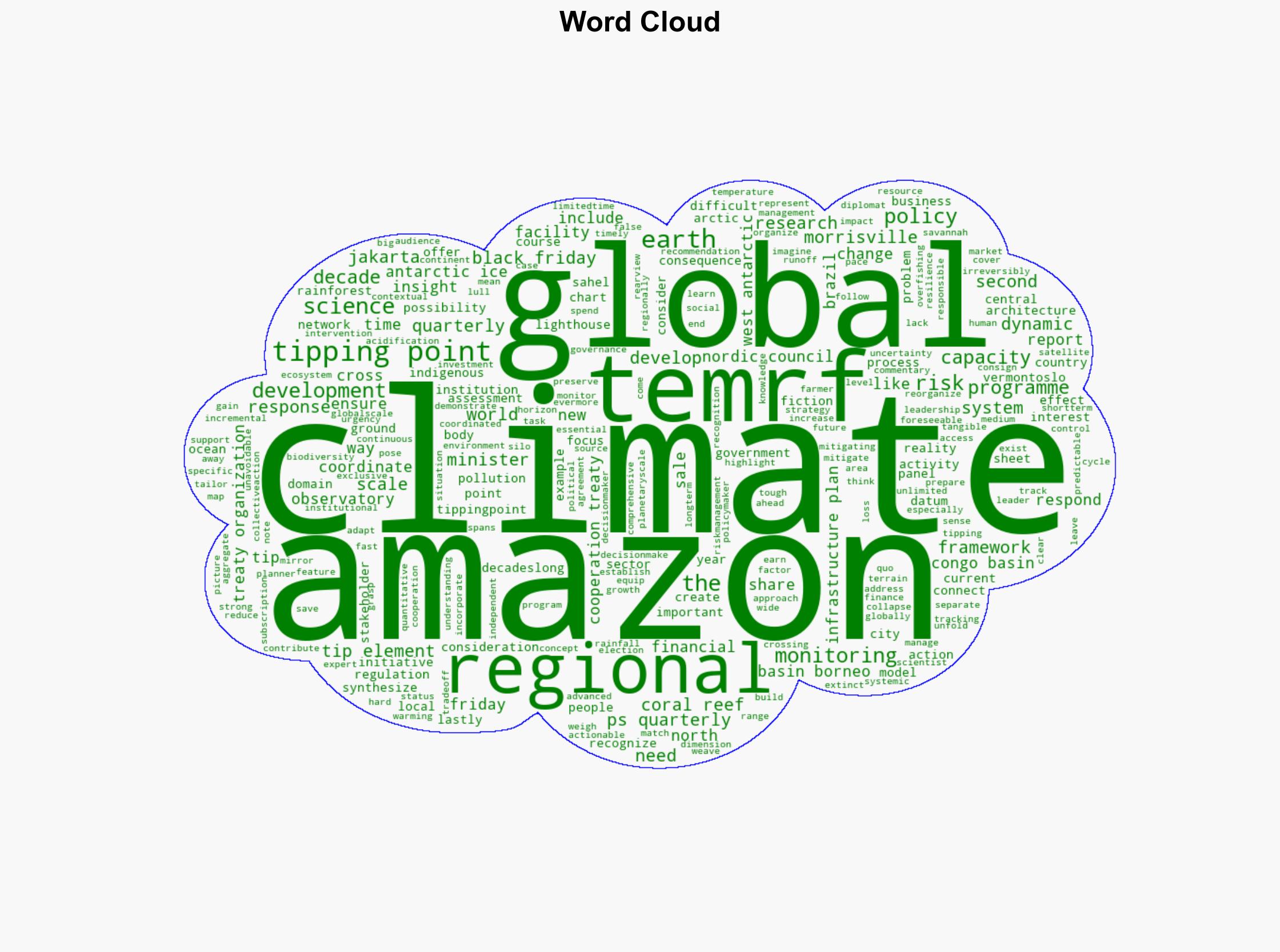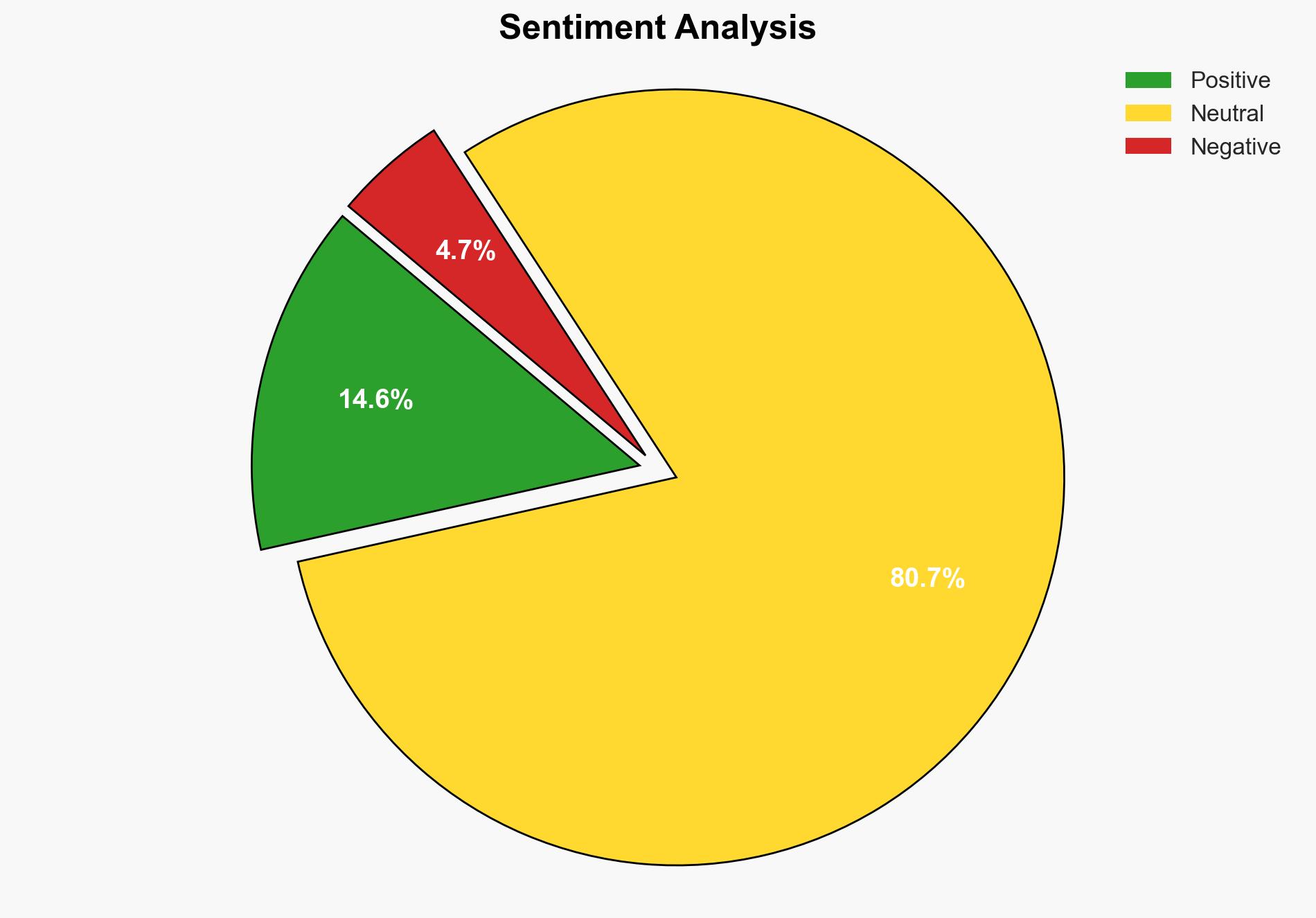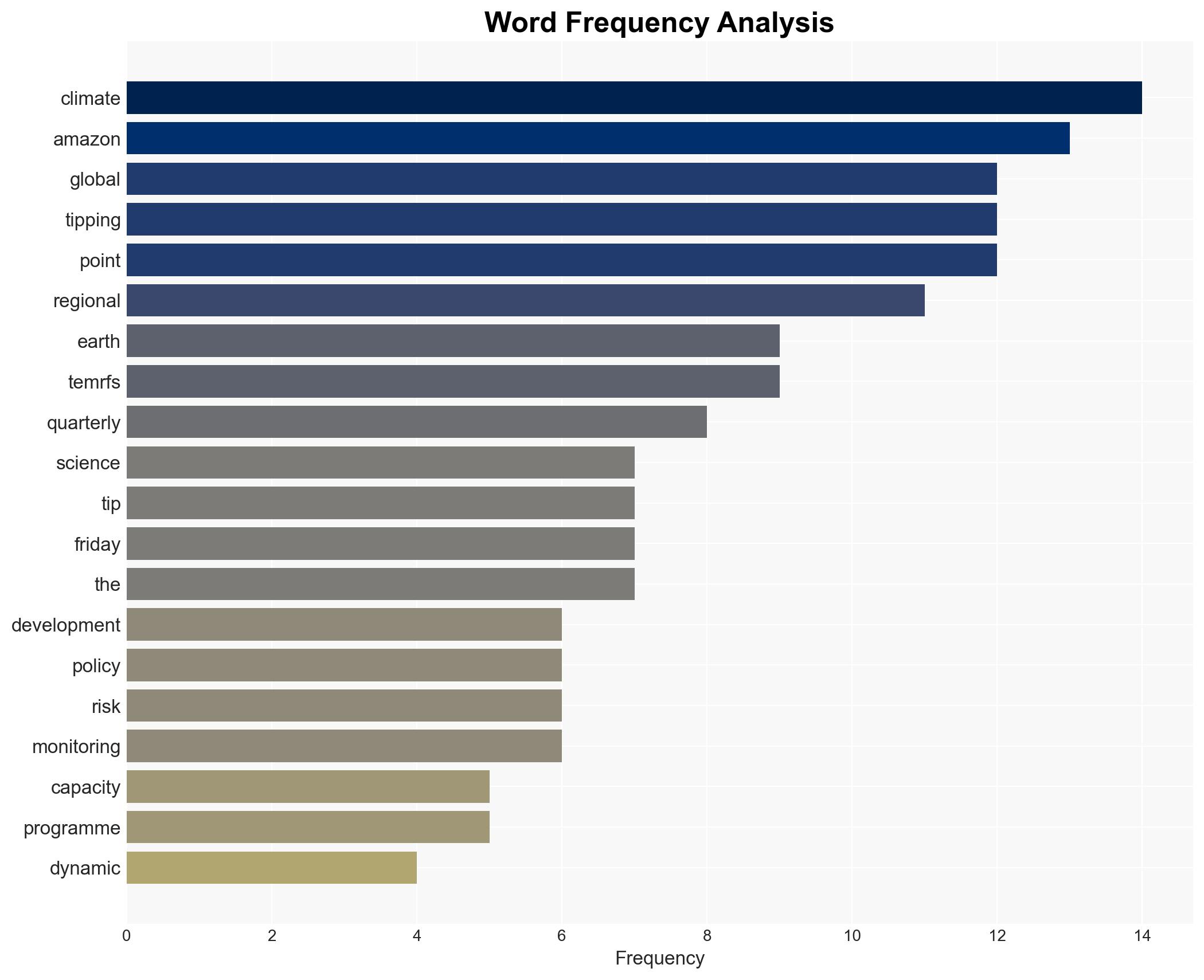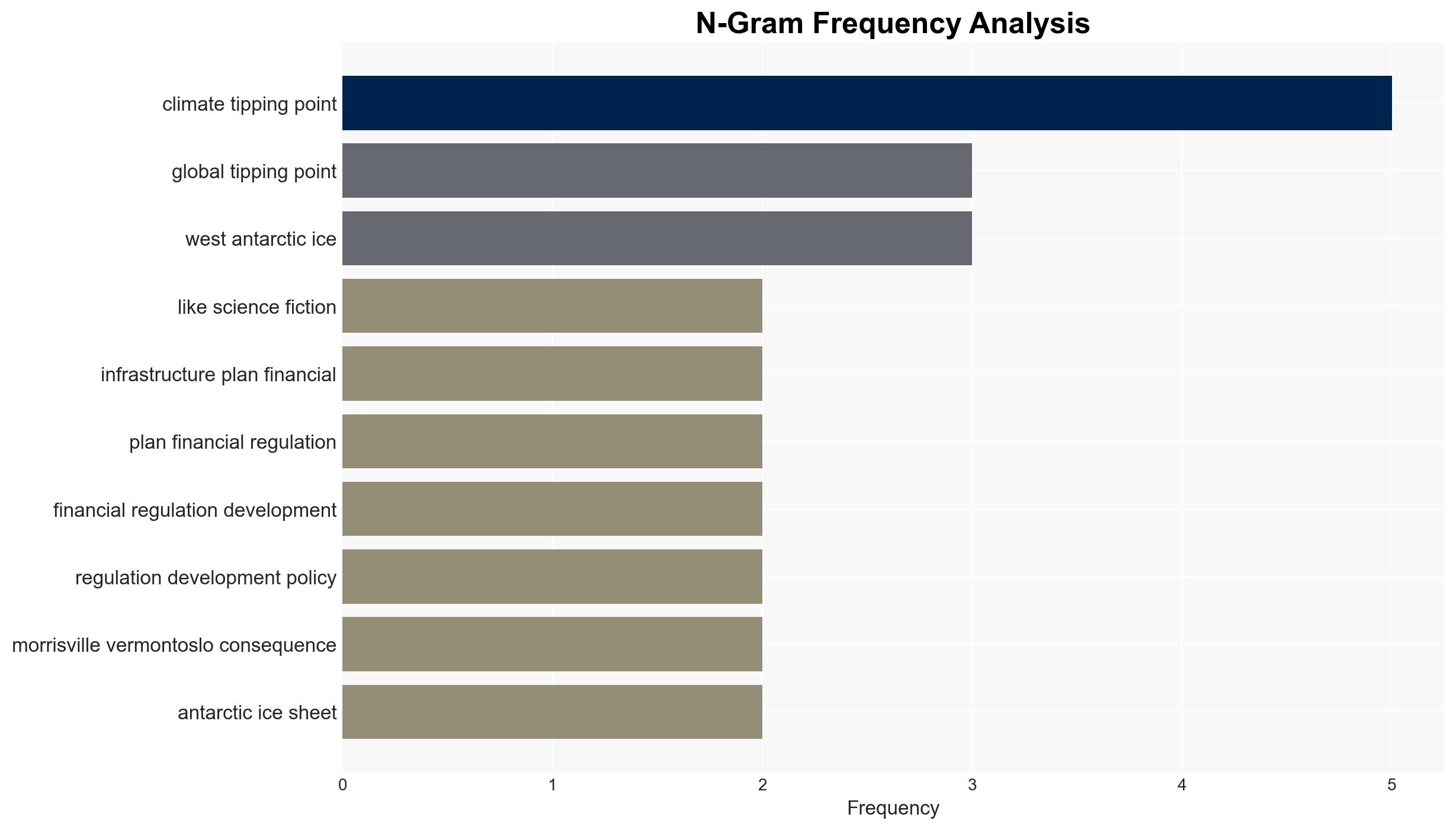Regional Leadership on Global Tipping Points – Project Syndicate
Published on: 2025-11-19
AI-powered OSINT brief from verified open sources. Automated NLP signal extraction with human verification. See our Methodology and Why WorldWideWatchers.
Intelligence Report: Regional Leadership on Global Tipping Points
1. BLUF (Bottom Line Up Front)
With a moderate confidence level, the most supported hypothesis is that regional leadership, through enhanced monitoring and response frameworks, can effectively mitigate the risks associated with climate tipping points. Strategic action should focus on developing regional capacities to track and respond to these tipping points, integrating local insights into global strategies.
2. Competing Hypotheses
Hypothesis 1: Regional leadership, through the development of targeted monitoring and response frameworks, can effectively mitigate the risks associated with climate tipping points. This hypothesis is supported by the potential for regional bodies to tailor strategies to local conditions and integrate diverse stakeholder inputs.
Hypothesis 2: Global coordination is essential, and regional efforts alone are insufficient to address climate tipping points due to the transboundary nature of environmental impacts and the need for comprehensive, global-scale interventions.
Hypothesis 1 is more likely due to the feasibility of regional initiatives to incorporate local insights and the current trend towards decentralized governance models. However, the interconnectedness of ecosystems and the global scale of climate challenges suggest that regional efforts must be part of a broader, coordinated global strategy.
3. Key Assumptions and Red Flags
Assumptions: It is assumed that regional bodies have the capacity and resources to develop and implement effective monitoring and response frameworks. Another assumption is that local insights can be effectively integrated into global strategies.
Red Flags: Potential lack of coordination between regional and global efforts could undermine effectiveness. There is also a risk of insufficient funding and political will to sustain long-term initiatives.
4. Implications and Strategic Risks
The failure to adequately address climate tipping points could lead to cascading environmental, economic, and social impacts. Politically, this could result in increased tensions over resource allocation and migration. Economically, there could be significant disruptions to agriculture and infrastructure. Informationally, misinformation and lack of awareness could hinder effective responses.
5. Recommendations and Outlook
- Develop regional monitoring and response facilities (TEMRFs) that are globally networked to enhance coordination and information sharing.
- Invest in capacity-building initiatives to ensure regional bodies can effectively track and respond to climate tipping points.
- Best-case scenario: Effective regional and global coordination leads to successful mitigation of climate tipping points.
- Worst-case scenario: Lack of coordination and insufficient resources result in significant environmental and socio-economic disruptions.
- Most-likely scenario: Gradual progress with regional initiatives contributing to broader global efforts, though challenges in coordination and resource allocation persist.
6. Key Individuals and Entities
Entities such as the World Climate Research Programme and regional observatories like the Amazon Regional Observatory Program are crucial. Key individuals are not specified in the source text.
7. Thematic Tags
Regional Focus, Climate Change, Environmental Policy, Global Coordination, Risk Management
Structured Analytic Techniques Applied
- Causal Layered Analysis (CLA): Analyze events across surface happenings, systems, worldviews, and myths.
- Cross-Impact Simulation: Model ripple effects across neighboring states, conflicts, or economic dependencies.
- Scenario Generation: Explore divergent futures under varying assumptions to identify plausible paths.
- Network Influence Mapping: Map influence relationships to assess actor impact.
Explore more:
Regional Focus Briefs ·
Daily Summary ·
Support us





